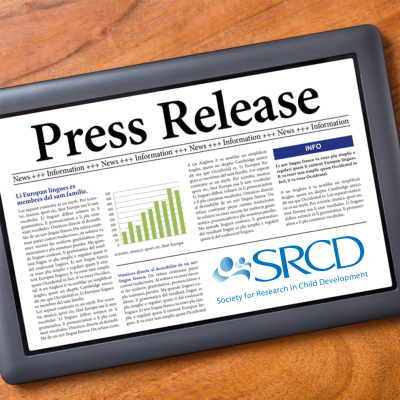How Deployment Affects Families: Researchers Consider Family-Based Risk and Resilience Models
PRESS RELEASE / 2013 SRCD Biennial Meeting: Embargoed for Release on April 18, 2013
Approximately 2 million children in the United States have at least one parent deployed in military service; 750,000 of those children are 5 years old and younger. Deployment can disrupt children’s well-being and development due to its impact on the care children receive, the destabilization of daily routines, and the effect on soldiers’ physical and psychological health upon returning home. Research has indicated that for some children, separation during deployment contributes to heightened levels of behavioral problems, psychiatric difficulties, and poor school performance.
At a symposium during the Society for Research in Child Development (SRCD) Biennial Meeting, researchers will address the effect of parents’ deployment on children. Using risk and resilience models, they will identify the critical role of families in influencing how children’s adjustment is affected.
Among the questions that will be addressed:
- What is the relationship between parents’ deployment and children’s well being, considering not only children’s mental health but also the influence of the deployment on children’s ability to achieve developmental tasks that form the foundation for later adjustment success?
- What role do combat-related injuries play and how do such stressors affect children’s and families’ well-being?
- What are the most effective ways to treat post-deployment family struggles that affect young children?
The symposium will also include a discussion with a member of the military who will speak to the relevance of this research, efforts to support military families, and the public policy and treatment implications of this work.
The symposium will take place in the Washington Convention Center, Room 630, on Thursday, April 18, 2013, from 2:20 to 3:50 p.m.
Researchers: Julie Wargo Aikins, Deane Aikins, Wayne State University; Michael Faran, Joint Base Lewis-McChord; Allison Holmes, Stephen J. Cozza, Carol S. Fullerton, and Robert Ursano, Uniformed Services University of Health Sciences; Ellen DeVoe, Abigail M. Ross, Michelle Acker, Melissa Holt, Boston University


